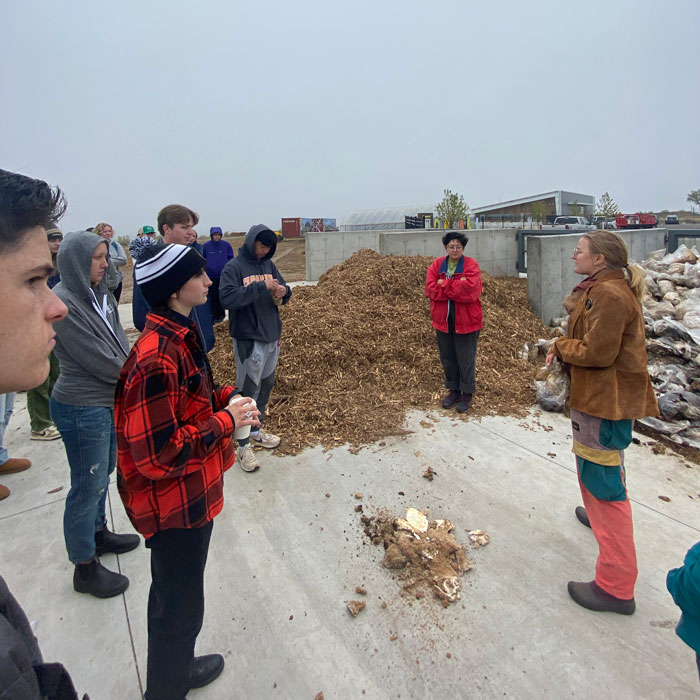Jillian Jaeger, Innovation and Sustainability Ph.D., recently began instructing a new Environmental Social Science course. The students dove deep into the intricacies of environmental justice within our own community here in Colorado Springs, as well as on a global scale. The course aims to help students understand the intersectionality behind the environmental harms we experience, and how local policies interact discordantly within each community because of their socioeconomic status. The class elaborated on how each person’s choices are constrained or enabled by their positionality. Recently, Colorado’s legislature passed an act which enables the state government to create an environmental justice task force. With this new law in place, the state is beginning to acknowledge the environmental harms that directly link to injustices felt by families living within these low-socioeconomic communities.
During the second week of the block, the class had the privilege of speaking with Renee Chacon, founder of Womxn from the Mountain, who is a member of the task force. The class discussed helping others by examining the mapping tools put in place by the task force, in order to look at environmental factors, as well as social factors, such as race, income, work, and education history. The class assessed the actions Colorado is taking, and how these lined up with what was found to be the best practices, or what the other solutions could be.
On Friday, the class took a trip to Food to Power, a local organization in Colorado Springs. Food to Power is continuing to make food more accessible within the Colorado Springs community. The class learned about the intricacies behind the organization, and even got their hands dirty by working on the farm. For their final project, students were challenged to research an environmental issue, and determine how it is disproportionately affecting small communities around the United States, define ongoing problems, and either determine why the solutions adopted do not work or find a solution themselves.
“There is no time to waste, and the sooner we realize how much power an individual has, the sooner we will collectively use that individual power to bring justice to these communities,” says Noah Furuseth ’26, a student in the course.





